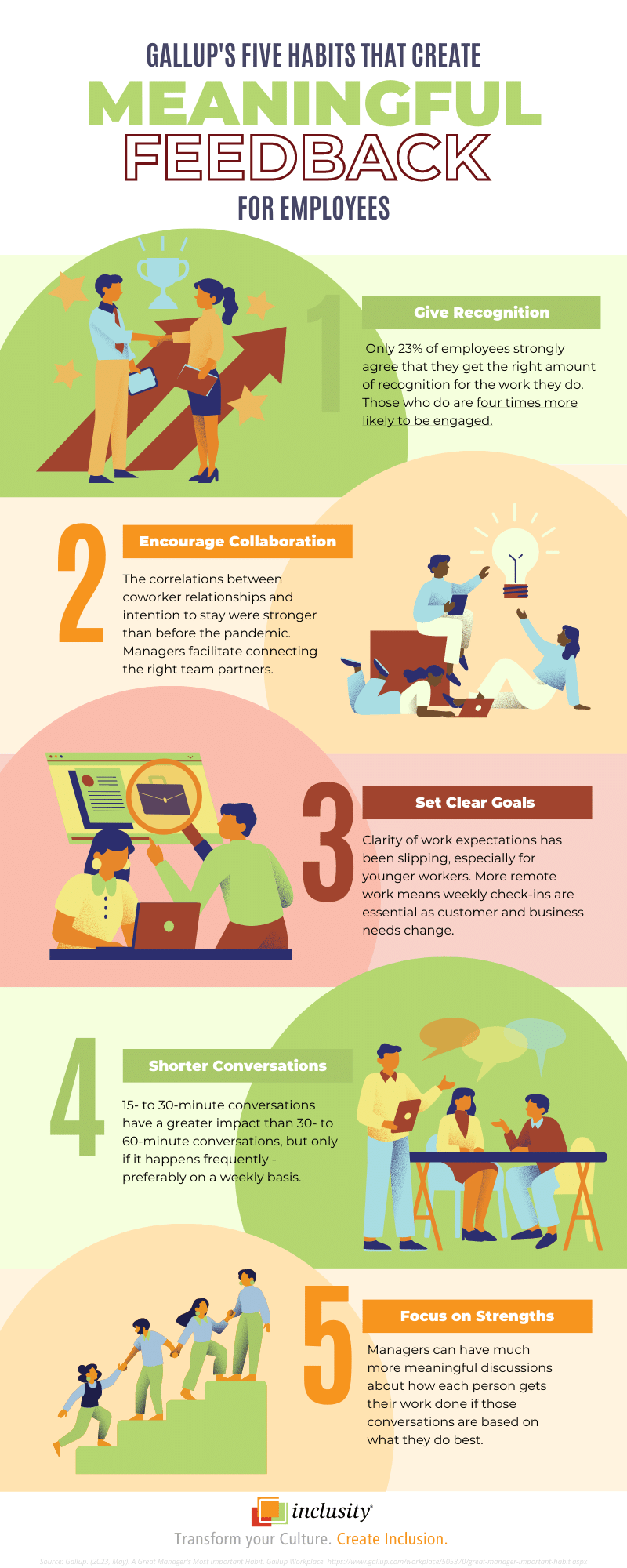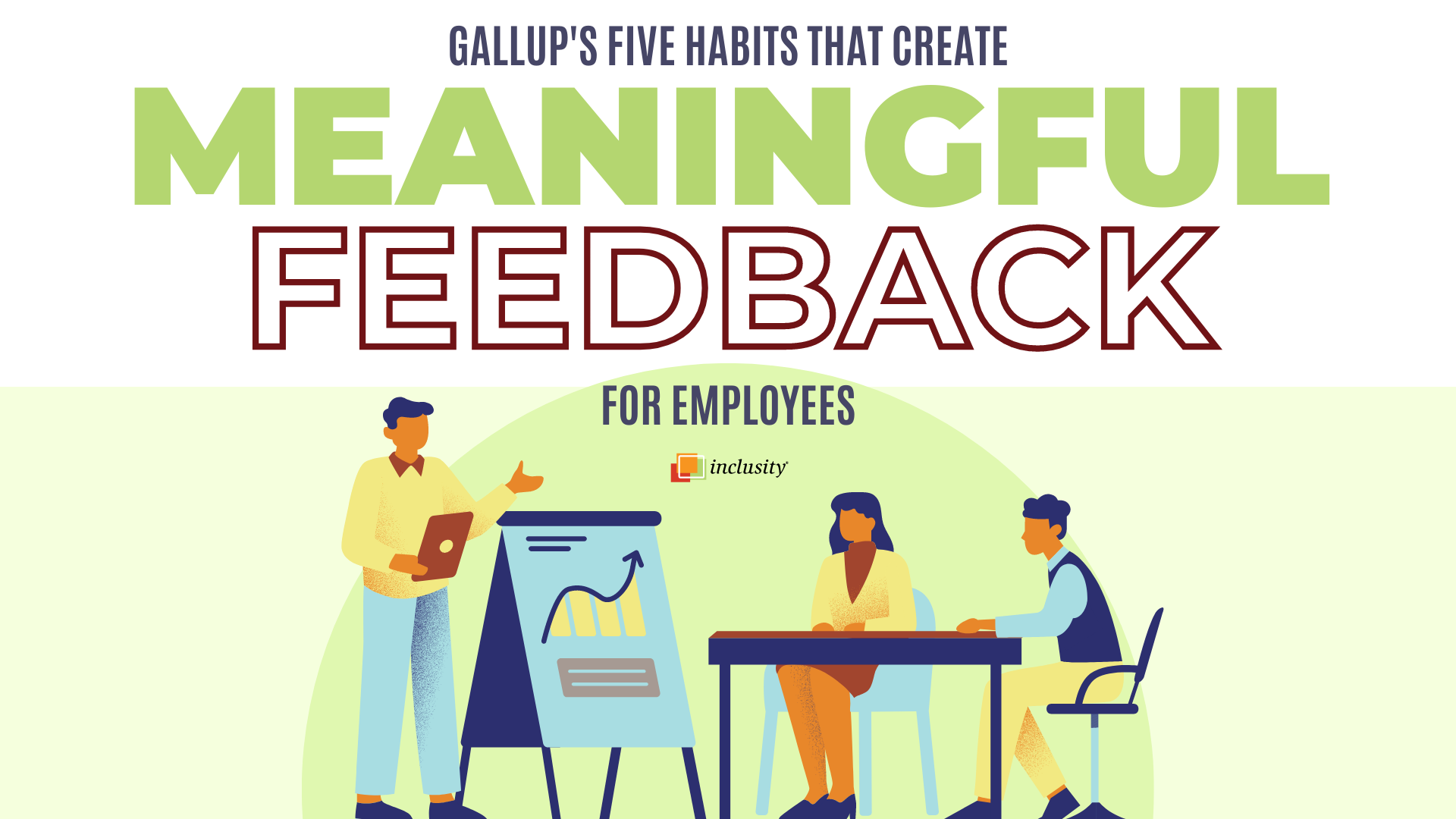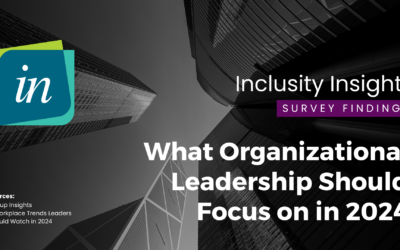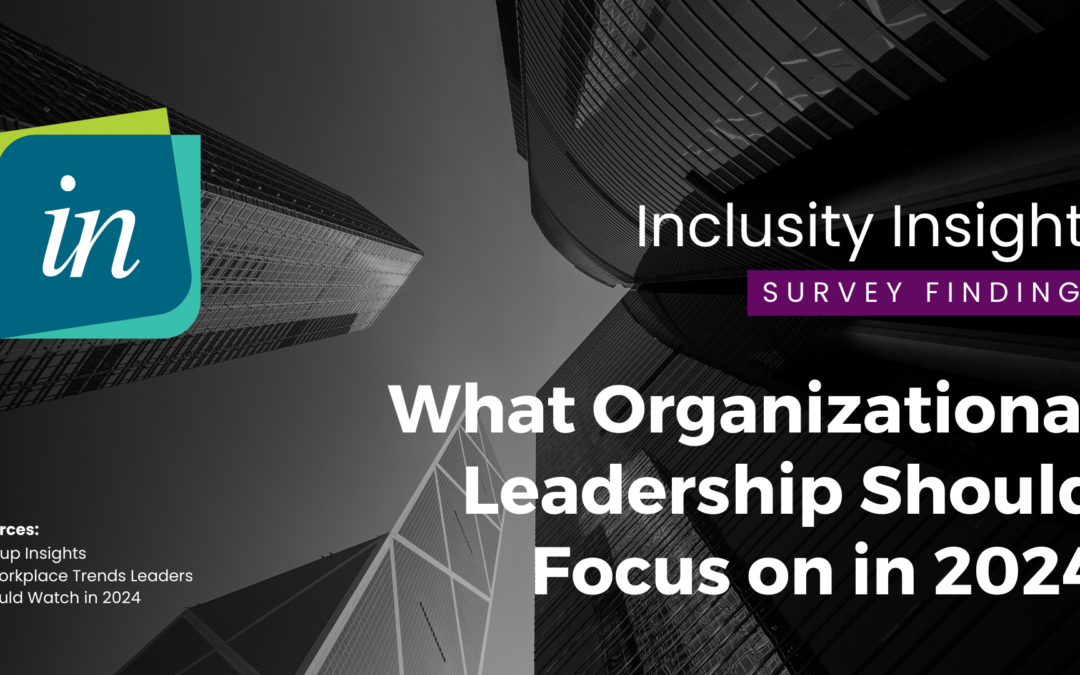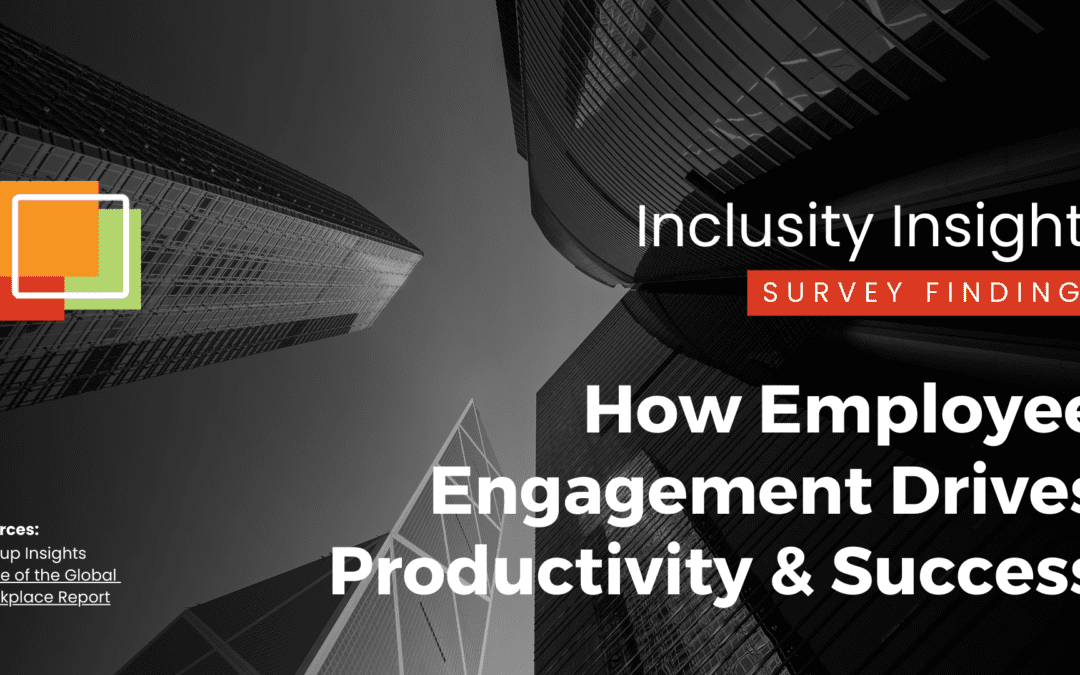Are you Struggling to Keep your Employees engaged? You’re not alone.
According to a Gallup survey, only 36% of U.S. employees are engaged at work. However, there’s a simple solution – meaningful conversation. Engaged employees are more productive, committed to their work, and more likely to stay with the company.
Why is Employee Engagement Important?
The importance of inclusive and engaged leadership at the highest levels is very closely tied to the engagement of their employees. As we talked about in our last post, highly engaged teams have been proven to have lower absenteeism, higher quality of work, higher profitability, and higher wellbeing. According to research, teams with high engagement have 81% lower absenteeism, 41% higher quality of work, 23% higher profitability, and 66% higher wellbeing than teams with low engagement.
Managers who are supervised by engaged leadership are 39% more likely to be engaged, and employees supervised by engaged managers are 59% more likely to be engaged. However, the same study shows that only 51% of managers and 30% of employees are engaged, costing businesses billions annually (Gallup, 2015).
But what does Employee Engagement have to do with Inclusive Leadership?
Another study by Gallup revealed the most interesting data yet. Respondents were asked: “If you could make one change at your current employer to make it a great place to work, what would it be?” 41% responded in the “Engagement and Culture,” category, far surpassing the next highest responses of “Pay and benefits” (28%) and “wellbeing.” (16%). Many respondents said they would like more recognition, opportunities to learn, fair treatment, clearer goals and better managers (Gallup, 2023). Practicing inclusive leadership will naturally lead to a more inclusive and engaging culture!
Here are five ways to increase employee engagement through meaningful conversation:
1. Recognize and Appreciate Employees
It’s essential to recognize and appreciate employees for the work they do. According to Gallup, only 23% of employees strongly agree that they get the right amount of recognition for their work. Managers should make an effort to recognize and appreciate employees regularly.
2. Facilitate Coworker Relationships
Managers can facilitate connecting the right team partners, whether in-person or virtually. This helps employees build relationships and trust with their coworkers, increasing engagement and productivity.
3. Provide Clarity of Work Expectations
Clarity of work expectations is key for employees to do their best work, but gallup’s poll shows that many employees lack clear direction – especially among younger workers. Managers should provide clear and specific expectations for each employee’s role and responsibilities, including goals and objectives.
4. Have Frequent, Short Conversations
Meaningful conversation does not always have to be long and in-depth. In fact, 15- to 30-minute conversations have a greater impact than 30- to 60-minute conversations, but only if it happens frequently – preferably on a weekly basis. Managers should schedule regular one-on-one meetings with their employees to discuss their progress, challenges, and aspirations.
5. Focus on Employee Strengths
By focusing on employee strengths, managers can help employees identify opportunities for growth and development. They can also assign tasks and projects that align with their strengths, which leads to greater engagement and motivation.
Creating meaningful conversation is a fantastic and simple way to increase employee engagement, and these five habits will make it easy to do so. Remember to recognize and appreciate your employees, facilitate coworker relationships, provide clarity of work expectations, have frequent, short conversations, and focus on employee strengths.
Check out the infographic below for a quick summary!
